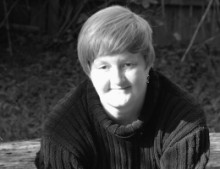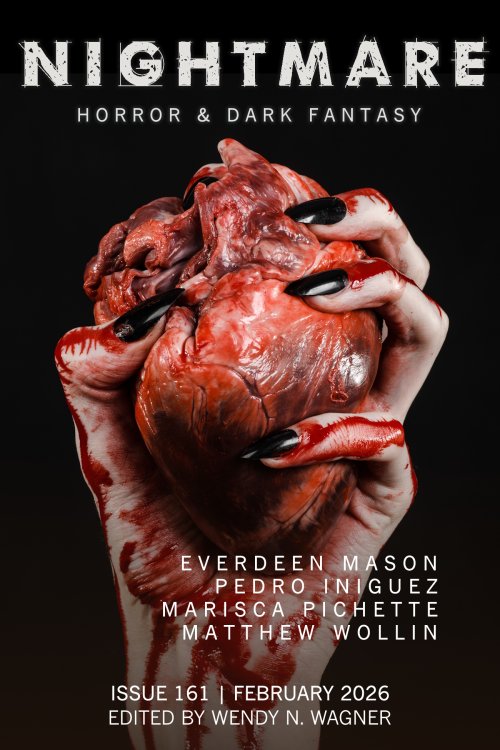“The Ascension of Magdalene” was violent, belittling, and agonizing, and I loved every single word. Those last two sentences . . . chef’s kiss. Tell us something about what inspired this delicious tale.
Thank you so much! This story actually has many seeds for it being so short, but I’ll focus on the two biggest here. My friend told me about this weather pattern that caused people headaches years ago and I thought, oh that’s interesting, so I filed it away. The second is the work of Leonard Koscianski; he’s a painter and I don’t think he means for his work to be so ominous, but I find every single one to be beautifully unsettling. He’s got a whole series featuring giant clouds and specifically “Stormy Days” just made the whole thing click for me.
Magdalene is at the same time Black and a woman. She is a liar and a woman. She is a woman and discarded and glorious. Which do you consider to be the greater horror here, the real or the supernatural? Is one more terrible because of the other?
For me the horror here was the real, and the supernatural was the release. Because the reality is that Magdalene and every other woman in that town would have suffered terribly and died while everyone around them called them hysterical and only cried because they couldn’t make breakfast anymore and that is reality for . . . a lot of real women.
I think the terror in the supernatural here is in the reader that . . . it’s not real. And realizing that it would be better if it was. It would be better if there was something beautiful and unexplainable that came at the end rather than just the reality of . . . being left to rot.
Horror is a genre of understanding. As a stroke survivor who suffers from chronic pain and debilitating migraines, I definitely understood Magdalene’s struggles with pain. The men turned a blind eye to her suffering, yet the woman in the pharmacy understood—every woman in town understood. Why does the men’s lack of understanding make the story all the more horrific?
Because it’s just so relatable. It’s so terribly real. How many articles do we read about how doctors don’t take women’s pain seriously? How many stories have we all heard of women getting diagnosed with fat and anxiety instead of cancer? How often do men scoff at menstrual pain? The list goes on and on. And to the reader, it’s so obvious that something is wrong, but none of these people and institutions are putting the pieces together because it’s only happening to the women, so it’s all in their heads.
You are both a writer and a visual artist. How do those two play off of one another? Do you ever explore the same idea in both forms?
I think I’m always circling around the same concepts in my writing and in my art. I’m always dealing with my ideas on being a Black femme, the horror of a body. But I think I deal more with the socio-economic-political aspects of it in my writing and my art is more about the internal emotions around it. There’s overlap, of course, but it’s definitely an outer/inner situation.
I have never approached the same specific idea with both, but now that you’ve brought it up, I want to! Maybe an illustrated chapbook?
If you could go back in time and offer young Donyae one piece of creative advice, what would it be?
So funny because someone asked this on Facebook yesterday, so I have an answer prepared!
Go to art school, you will be fine, Baby Me. Just go ahead and do it. Even if you drop out, it’s fine. Write those weirdo dark fairy tales. Don’t let other people influence you. They cannot envision the world that was meant for you. Go to art school.
What’s next for Donyae Coles? What projects do you have waiting in the wings?
My book, Midnight Rooms, is finally coming out next summer (yay!), so I’m preparing for that. I’m working on a new spooky book right now and hopefully I’ll have some good news about that in the next couple of months! A couple of fun things are still cooking, so I can’t talk about them yet! I’m also working on the biggest painting I’ve ever done in my life, hopefully by the time this is published I’m done with it, so I can start on that chapbook we just discussed.









